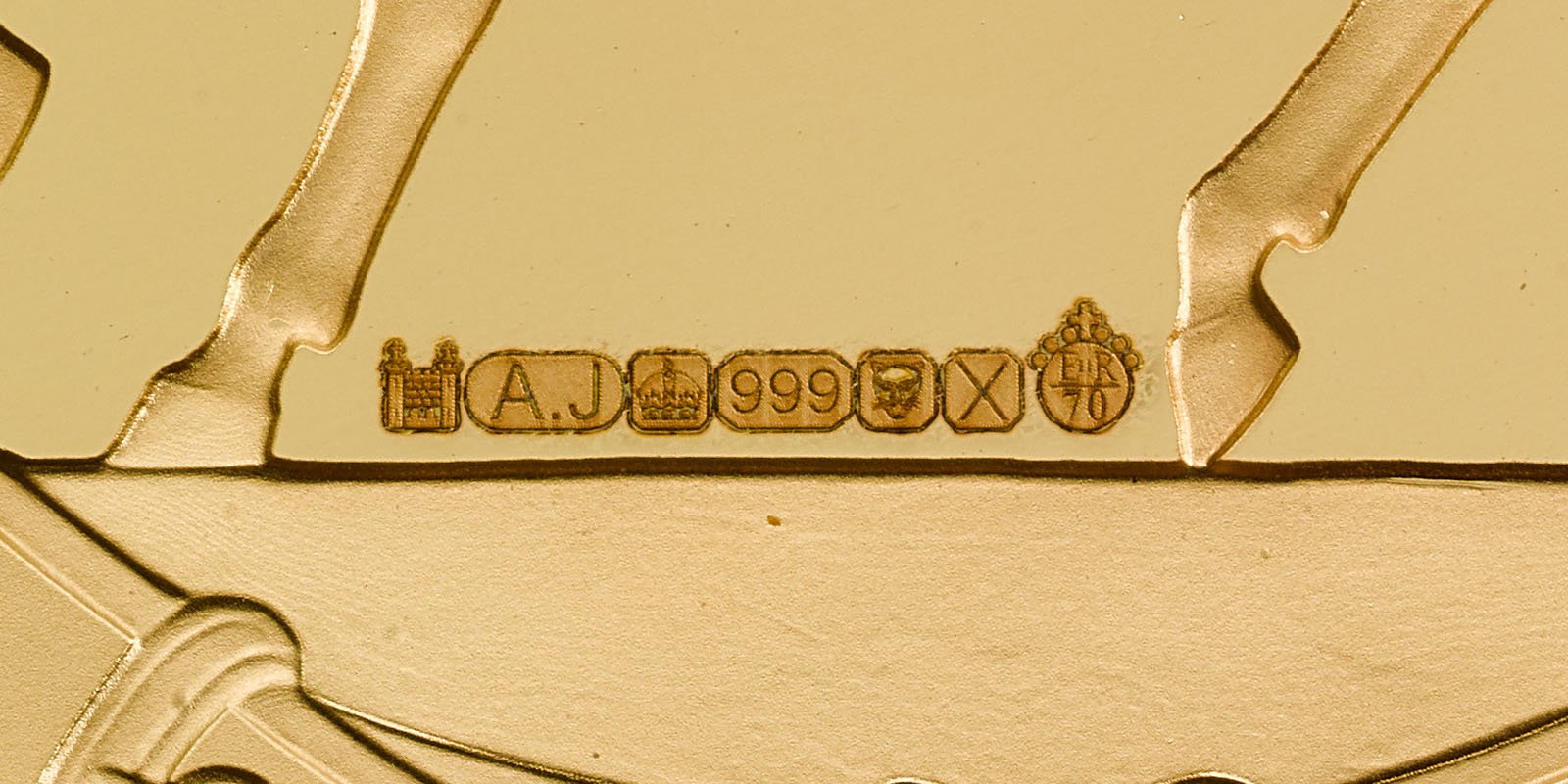To mark Her Late Majesty The Queen becoming the first British monarch to celebrate a Platinum Jubilee, a selection of the die trial pieces available to purchase at our Die Trial Pieces and Pattern Piece Auction on 6 March 2022 will feature an exclusive hallmark in honour of this unprecedented achievement. The British Hallmarking Council has sanctioned this new hallmark, designed by Thomas Fattorini Ltd, which depicts ‘EIIR’ over ‘70’ within an orb. To commemorate this momentous occasion, this special hallmark appears on the 2022 dated die trial pieces, acting as a memento of The Queen’s Platinum Jubilee and providing an additional point of interest for each piece. Historically, commemorative marks have proved extremely popular with collectors, including the privy marks previously released on coins commemorating The Queen’s Silver, Golden and Diamond Jubilees.
The hallmarking of items provides a certain amount of consumer protection, ensuring that the precious metals used to create each item meet a set standard. Issued to the mayor and aldermen of London, an order from Henry III in 1238 to establish of a group of goldsmiths that would oversee the quality of gold and silver wares is the earliest document in England to deliver this assurance.
Today, The Goldsmiths’ Company attests to the quality and purity of a number of items made with silver, gold, platinum, and palladium in the United Kingdom. Also known as the Worshipful Company of Goldsmiths, the guild has been headquartered at Goldsmiths’ Hall in the City of London since 1339 and it is generally accepted that the word ‘hallmark’ derives from the name of Goldsmiths’ Hall. The Hall is also home to the Trial of the Pyx, which is a ceremony of particular importance for The Royal Mint, as it is where they test our coins to ensure they are within the statutory limits for their metallic composition, weight and size.
Over the centuries, there have been a few changes to the hallmarking process but the Goldsmiths’ Company’s London assay office still use the leopard’s head mark, whereas others have been introduced for office around the UK, including Birmingham (as signified by an anchor mark), Sheffield (a Yorkshire rose) and Edinburgh (a castle). Hallmarking has always been a serious act, so much so that in 1757, counterfeiting hallmarks became a felony punishable by death. Things are a little less severe today, of course, but the Goldsmiths’ Company is still immensely proud of its unique role, as it provides people with confidence when they give and receive gifts made with precious metals assayed by the guild.

